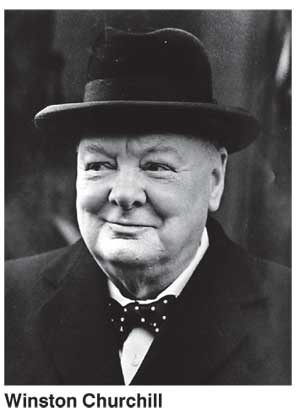A Brief Colonial History Of Ceylon(SriLanka)
Sri Lanka: One Island Two Nations
A Brief Colonial History Of Ceylon(SriLanka)
Sri Lanka: One Island Two Nations
(Full Story)
Search This Blog
Back to 500BC.
==========================
Thiranjala Weerasinghe sj.- One Island Two Nations
?????????????????????????????????????????????????Friday, December 15, 2017
Churchill as Finance Minister (Chancellor of the Exchequer)
“There are two ways to acquire the niceties of life. The first is to produce them; the second is to plunder them. When plunder becomes a way of life for a group of men living together in society, they create for themselves in the course of time, a legal system that authorises plunder and a moral code that glorifies it” – Paul Valery
 Friday, 15 December 2017
Friday, 15 December 2017 Very
few of today’s readers are aware that Winston Churchill was one time
the Chancellor of the Exchequer (1924-29), a position comparable to our
Finance Minister. At the time, Great Britain was perhaps the largest
economy in the world, the centre of a global empire on which it was
claimed the sun never set. Much of international trading and financial
transactions were London based then.
Very
few of today’s readers are aware that Winston Churchill was one time
the Chancellor of the Exchequer (1924-29), a position comparable to our
Finance Minister. At the time, Great Britain was perhaps the largest
economy in the world, the centre of a global empire on which it was
claimed the sun never set. Much of international trading and financial
transactions were London based then.This proximity to power, trade and money of course did not mean that the Chancellor of the British Exchequer automatically became a wealthy person. One of the striking features of the British Empire was its public service (broadly inclusive of its legislature and the judiciary) ,both in Britain as well as its far flung colonies, which, by and large retained its integrity and lustre; a system that later provided the model for the now independent colonies.
Having left the Conservative party to join the Liberals in 1904, Churchill re-joined the Conservatives in 1924 now under the leadership of Stanley Baldwin commenting wryly, “Anyone can rat, but it takes a certain ingenuity to re-rat!” Baldwin made him Chancellor of the Exchequer. Churchill was not cut out for the humdrum of State finance. It needed an epic, the far more dramatic setting of a World War to bring out the inherent genius of the man in full measure.
As to the minutiae of high finance, he pretended no mastery. When the suggestion was made to return to the Gold Standard at the pre-war parity (WW1 1914-18), Churchill gave ear to a wide range of opinions for and against, once even arranging an all-night discussion between the two sides to thrash out the pros and cons. Many government officials were for the Gold Standard while there was strong opposition from important quarters, including the economist John Maynard Keynes.
Although the 1925 decision to return to the Gold Standard was initially popular, it soon proved to be an unwise move, resulting in huge loses to the industries and the larger economy, with adverse global consequences. Churchill regretted the decision as one of the biggest mistakes of his career.
Keeping the home fires burning
 There
was very little mixing of public office and private interests. All his
life, Churchill had to work hard to keep his home fires burning; mainly
writing, an occupation which later earned the redoubtable Englishman a
Nobel Prize in literature. The famed Churchillian taste for all things
good, the richness of his dining table was legendry, ensured a home fire
that burnt fast and furious.
There
was very little mixing of public office and private interests. All his
life, Churchill had to work hard to keep his home fires burning; mainly
writing, an occupation which later earned the redoubtable Englishman a
Nobel Prize in literature. The famed Churchillian taste for all things
good, the richness of his dining table was legendry, ensured a home fire
that burnt fast and furious.A typical dinner at Chartwell, his country home is described thus: “Dinner, the day’s main event is scheduled to be served at 8.30. He may reach the drawing room at 8.45. It is lunch (partaken lavishly early afternoon) on a far grander scale, with more guests, of greater distinction, silvery buckets of iced champagne, Churchill presiding in his grandest manner, and several courses. Among the foods likeliest to be served are clear soup, oysters, caviar, Gruyere cheese, pate de foiegras, trout, shoulder of lamb, lobster, dressed crab, petite marmite, scampi, Dover sole, chocolate éclairs and, of course, roast beef and Yorkshire pudding. Clemmie (Clementine, his wife), who knows his preferences, has briefed the cook on what is to be on the menu.
“If he has been in London recently, different versions of his latest witticisms have been repeated in the clubs of Pall Mall and St. James’s, in drawing rooms of the West End and the city counting rooms. Asked now to confirm them, he nods as he gropes for a match or the stem of his wineglass, pausing occasionally to correct a verb or alter syntax. He tells of how crossing Parliament Square, he ran into Lord Londonderry, his cousin and frequent adversary. Londonderry hoping to drive home a point had asked him, ‘Have you read my latest book?’ Winston chortles his reply, ‘No, I only read for pleasure or profit’.
“It is difficult to keep up with a host who can set such a pace. Nevertheless, the dinner is not a one-man show; guests have been invited for lustre, not servility.
“The talk was by no means confined to politics; it ranged over history, art and literature; it toyed with philosophical themes; it visited the past and explored the future. Sometimes the conversation was a ding-dong battle of wits and words between say, Winston and Duff Cooper, the verbal pyrotechnics waxed hot and fierce, usually dissolving into gales of laughter. Frequently he would recite ‘Horatius’, and this was very popular with the children.
“All his guests meet his conversational standards: ‘the man who cannot say what he has to say in good English cannot have very much to say that is worth listening to!’
“After the ladies have left, men gather around him for port, brandy and cigars, he will sit around till 10PM, or later, talking of great political issues of the past, battlefields of his youth, strategic innovations of the American Civil War (1861-65)-Churchill can re-enact any battle in that war, from Bull Run to Five Forks, citing the troops engaged on either side, identifying the commanders, describing the passage of arms, the aftermath.
“It is 11PM; Churchill sees his overnight guests to their rooms and as they retire, begins his working day. Only after entering his employ will Bill Deakin discover to his astonishment, that Churchill lacks a large private income, that he lives like a pasha, yet must support his extravagant life with his pen. The Churchill children are also unaware that, the family literally lived from book to book and from one article to the next. Clementine who knows, prays that each manuscript will sell. Luckily, they all do, the editors and publishers, both in Britain and America, pay him the highest rates. His output is prodigious.” – ‘The Last Lion,’ William Manchester
Sri Lankan way of looking at things
This was a man, who before becoming Prime Minister in 1940, was not only once a Chancellor of the British Exchequer, but also at various times, Home Secretary, First Lord of the Admiralty (1911-15), Minister of Munitions, Secretary of State for War, in addition to several other high appointments in the government and the armed forces. In 1915, after resigning from the Cabinet, Churchill volunteered; going to the Western Front to face the fearsome German barrages as a middle order military officer.For us in this country, with vastly different experiences and expectations of holders of public office or even what is considered ‘manly’ or ‘gentlemanly’ conduct for that matter; it is difficult to comprehend either a person or a career such as of Churchill. A Sri Lankan Cabinet Minister resigning in order to go to the trenches to do battle for King and country is unthinkable in our context. His physical attributes and even the mental make-up will only make a Cabinet Minister a burden to the fighting men.
On the other hand, if dressed in immaculate white; in bearing, spuriously humble; in mentality, sly; in skills, mediocre; in attitude, vulgar; and protected by a large posse of soldiers, we might say with awe, behold a man!
In such a culture, cunning is taken for intelligence, commonness equated with affability, a petulant effeminacy seen as toughness, sentimentality interpreted as empathy and irresponsibility hailed as decisiveness. With this way of looking at things, it is no surprise that a thug is seen as a hero, a financial sharper as an economic wizard and nepotism as dutiful conduct!
Keeping the wolf away from the door
Only a few years after serving as Chancellor of the Exchequer, Churchill was struggling to keep the wolf away from the door. Sometime in 1936/7 he received an unwelcome letter from the Editor of Evening Standard terminating his long term contract for “divergence” of policy , including the then prevailing appeasement of Nazi Germany. In 1938, the blow fell when recession hit the Wall Street, where Winston had lain his reserve. Stock prices plummeted so swiftly, and so deeply, that his broker told him that his American investments had been wiped out and that in fact, it was worse, he owed the brokerage firm 18,000 Pounds.It appeared Churchill had no choice, his beloved home Chartwell and its 80 acres will have to be sold. He would have to quit parliament to make money as a writer, lecturer, and/or businessman. He discussed with Clementine plans for economising; “Told Sarah (daughter) I will give her £200 towards expenses, fuel for Chartwell to be delivered in five ton batches of £ 11, the wine has been very strictly controlled and little drunk” and finally he wrote on a note of triumph “I am not taking Inches (valet) with me abroad!”
Clemmie knew that the little saved by leaving his valet behind would shrink to insignificance beside his Riviera expenses. Experience has taught her that budgets did not work with the Churchill family, the reason, although he would never have acknowledged it – he was the family spendthrift.
Ruin was only averted by the intervention of a few devoted and well-heeled friends and admirers, who made financial arrangements that enabled Churchill to commit himself fully to the cause of challenging the Nazi menace while they managed his portfolio. It was only a financial reprieve, a loan, and not a gift; Churchill was to repay in time with the money his books brought him.
The tragedy of our times
The public offices that Churchill held during his life, in Sri Lanka are considered finger-licking good prospects for earning commissions and kick-backs. High Office is an opportunity, not to take your valet abroad at your expense, but for the whole family to see this big wide world at public expense. The holders of high positions in Sri Lanka end up not only much richer for the effort, but leave behind institutions they touched sullied, diminished or demoralised.Churchill was an Englishman, of a time and of a history. He gave his best to his country, its institutions and its cause. This is something we cannot say of many of our leaders. That is the tragedy of our times, and perhaps, even climes.

